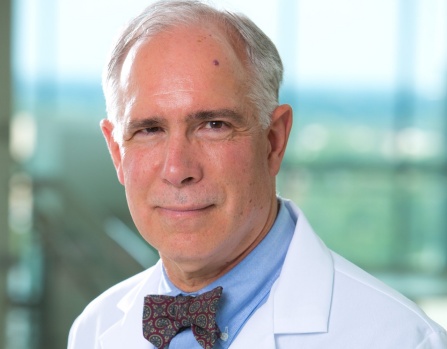
Faculty spotlight: Jim Jarvis
Dr. Jim Jarvis is joining the Divisions of Rheumatology in the Department of Pediatrics (primary) and Department of Medicine at the University of Washington on Jan. 1, 2024. He comes to UW from the Jacobs School of Medicine at the University of Buffalo.
As the principal investigator of a multi-year grant from the Arthritis Foundation, he will lead an initiative at the UW focused on training a generation of indigenous rheumatologists to increase the number of indigenous people involved in rheumatology health professions.
Research
After completing rheumatology training and developing an interest in genetics, Jarvis spent years investigating the biological mechanisms underlying increased juvenile arthritis rates among Native American populations.
His research addresses the contributions of historical and ongoing trauma to high rates of illness in indigenous communities, aiming to address inequities.
Jarvis has a keen interest in children with juvenile idiopathic arthritis (JIA), systemic lupus, and inflammatory muscle disease. His laboratory investigates the genetic mechanisms that drive risk for childhood onset rheumatic diseases, including JIA and systemic lupus erythematosus (SLE).
Native American Child Health
Jarvis has worked with indigenous American children, who have among the highest rates of autoimmune diseases in the world and whose expression of rheumatic disease and treatment response are slightly different from the broader population.
He spends considerable time working with indigenous American communities on a broad range of child health issues. He served as chair of the American Academy of Pediatrics Committee on Native American Child Health, and continues to be involved in advocacy efforts for indigenous children.
He has a special interest in how so-called epigenetic factors, stemming from historical traumas and cultural dislocation, may play a role in how rheumatic diseases are expressed in indigenous children.
Serving indigenous communities
With ancestry from the Mohawk Nation at Akwesasne and French Canada, Jarvis has long felt a calling to serve indigenous communities through his medical practice and research.
As someone raised with community-oriented values, he knew that one way or another, some kind of service to his community, to the public, and to marginalized populations would be his path.
This calling led him to focus his medical practice and research on improving outcomes for indigenous peoples.
“I've never forgotten the fact that that we live in an environment where people have been not only excluded but abused and humiliated for centuries. I just can't not pay attention to that.”
Teaching and mentoring
He is a renowned mentor of talented Native American students and previous students include a veritable “Who’s Who” among young Native American physicians.
At the University of Washington, his primary goal will be to provide training for Indigenous students interested in pursuing rheumatology, given the high rates of rheumatic diseases in Native communities.
Additionally, Jarvis aims to expose Native students to the wide range of illnesses calling for research beyond heart disease and diabetes, especially the interactions of historical trauma, diet changes, lifestyle factors, environmental threats, and racism on health outcomes.
By mentoring future Indigenous healers, he hopes to address the pressing health needs of Native populations.
“I want to train indigenous students, particularly in rheumatology, but my secondary goal is to make indigenous students realize that, at the very least, there are more illnesses than heart disease and diabetes to be investigating, with the overlap between historical trauma and diet change and ongoing dietary, lifestyle and environmental threats."
Native American Heritage Month
Regarding the significance of Native American Heritage Month, Jarvis believes the important message is "the reminder that we are still here and that despite attempts to wipe us out and erase our cultures, we still practice our traditions and have lessons to share."
He believes indigenous values of community interdependence over individualism offer important teachings for mainstream American society.
“I was raised with the understanding that the community comes first and the individual second, and the individual can only thrive if the community thrives. I think this is a lesson that that this country desperately needs to learn again.”
Building community
To further enhance inclusion and support for Native students at UW, Jarvis recommends intentional efforts to build community. "One of the ways that indigenous students, in my experience, settle well into a place is if they can look around the room and see other indigenous students or look around the room and see indigenous teachers," he explains.
He advises bringing together Native students across UW programs and campuses for gatherings with indigenous faculty at least annually.
He also calls for homogeneous and intentionally smooth transitions between tribal colleges, universities and graduate programs. “It has to be uniform, with credits transferring seamlessly," he says.
Written by Dr. David Horne, associate professor and associate chair for DEI and Jasmin Kim, DEI intern.